Gallery Network
Spotlight: A New Exhibition Looks Back at Gordon Parks’s Seminal Photography
An expanded edition of Parks's 1971 book accompanies the show at Jack Shainman Gallery, New York.
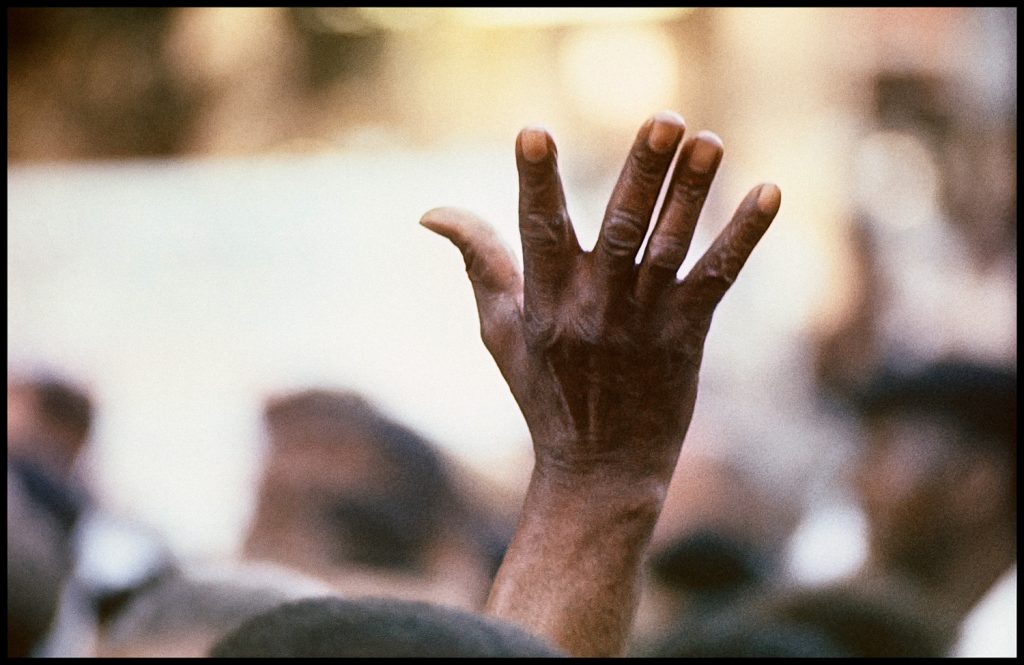
An expanded edition of Parks's 1971 book accompanies the show at Jack Shainman Gallery, New York.

Artnet Gallery Network

Every month, hundreds of galleries add newly available works by thousands of artists to the Artnet Gallery Network—and every week, we shine a spotlight on one artist or exhibition you should know. Check out what we have in store, and inquire for more with one simple click.
What You Need to Know: Curated in collaboration with the Gordon Parks Foundation, Jack Shainman Gallery in downtown New York is presenting “Gordon Parks: Born Black,” on view through April 20, 2024. Using Parks’s 1971 book Gordon Parks: Born Black, A Personal Report on the Decade of Black Revolt 1960–1970 as a starting point, the exhibition focuses on the publication’s core themes, offering expanded insight and understanding of both the photographer’s ideas and writing as well as body of work.
Speaking of the occasion, the Gordon Parks Foundation Executive Director Peter W. Kunhardt, Jr., said that the exhibition “is a deep dive into Gordon’s documentation of the Civil Rights and Black Power Movements and coincides with the release of the expanded edition of Gordon Parks: Born Black published by Steidl and the Gordon Parks Foundation. Gordon’s original book published in 1971 was the first book to unite Gordon’s writing and photographs. Parks’s images and words are accompanied by new essays from critics Nicole Fleetwood and Jelani Cobb.”
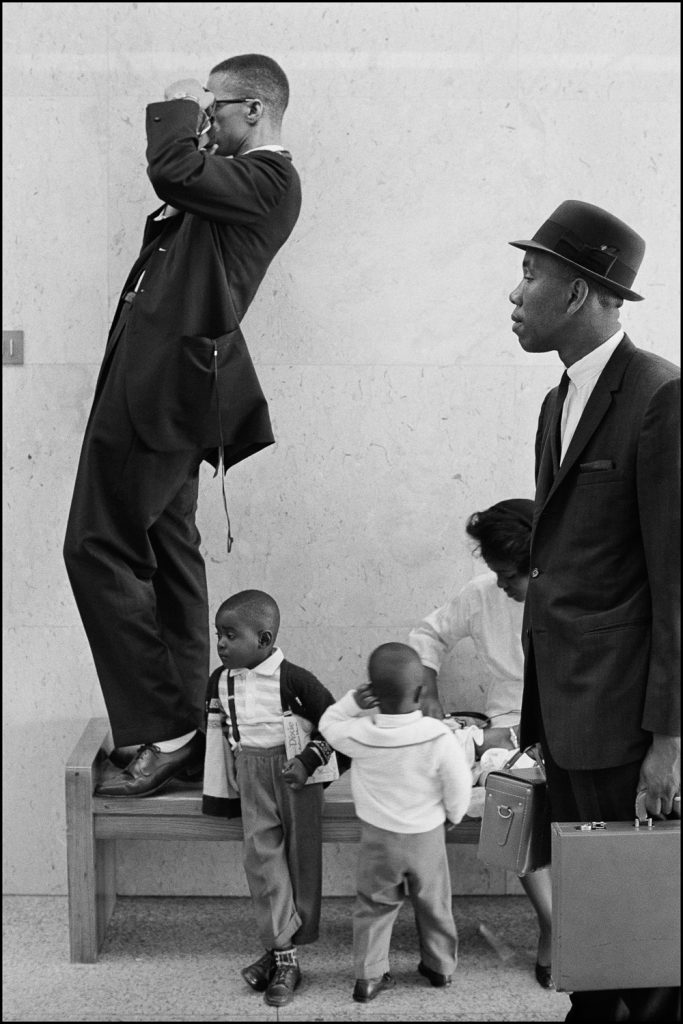
Gordon Parks, Untitled (1963). Courtesy and copyright the Gordon Parks Foundation.
About the Artist: Widely known and recognized for his work in documentary photojournalism, American photographer, writer, and filmmaker Gordon Parks (1912–2006) was self-taught, and was initially inspired by the images produced by the Farm Security Administration in the 1930s to pursue photography. Originally from Fort Scott, Kansas, he spent his early career working as a fashion photographer in midwestern cities like Minneapolis and Chicago, ultimately working for Vogue in 1944 and Life in 1948—where he continued to work until 1970. During this period, Parks produced some of his most influential photo essays, documenting moments from the Civil Rights Movement, as well as facets of everyday life in cities and towns across the country.
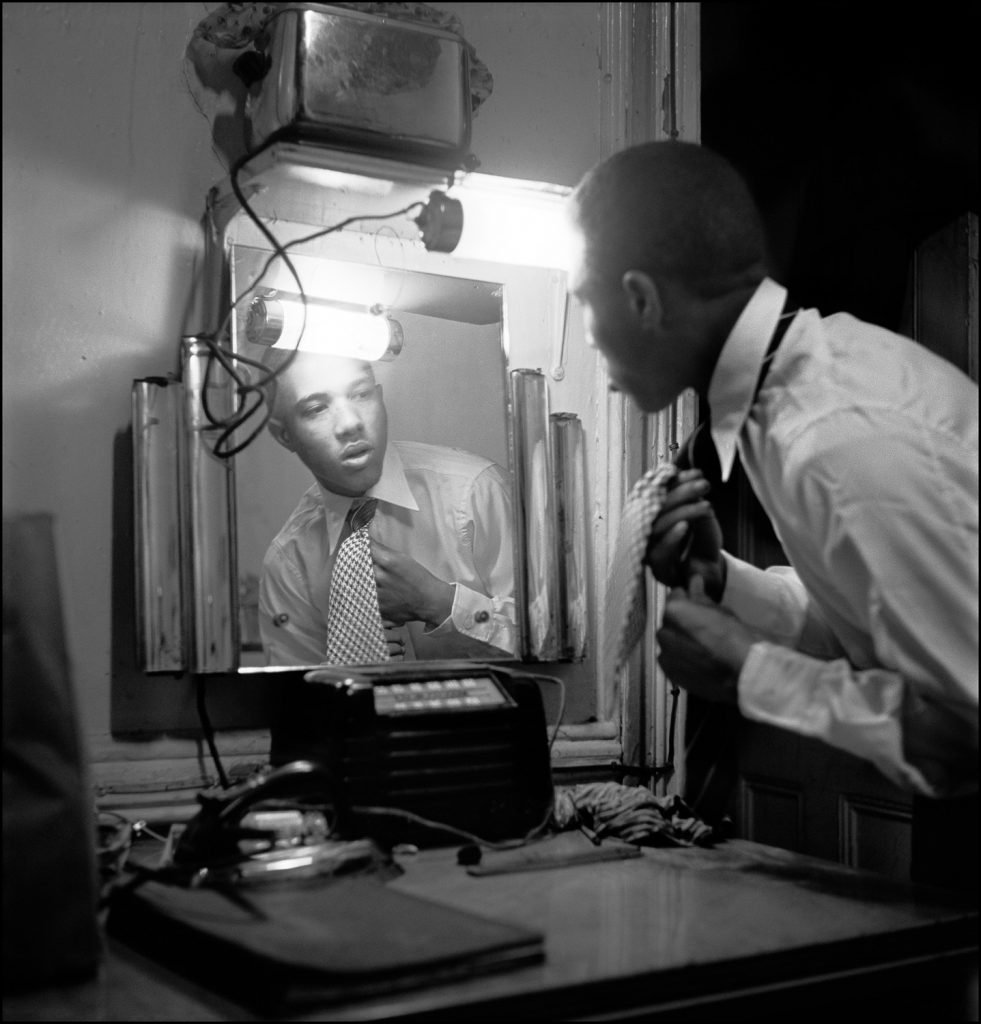
Gordon Parks, Untitled, Harlem, New York (1948). Courtesy and copyright the Gordon Parks Foundation.
His work frequently engaged with themes of race relations, poverty, and politics, making his career one of the most notable of the 20th century. He was also a pioneer within the film industry, being one of the first Black men to direct films within the predominantly white Hollywood movie system. He was awarded the Congress of Racial Equality Lifetime Achievement Award in 2000 and has been bestowed with more than 20 honorary doctorates from various institutions. In 1995, his archive was acquired by the Library of Congress in Washington, D.C., solidifying both his and his work’s legacy for future generations.
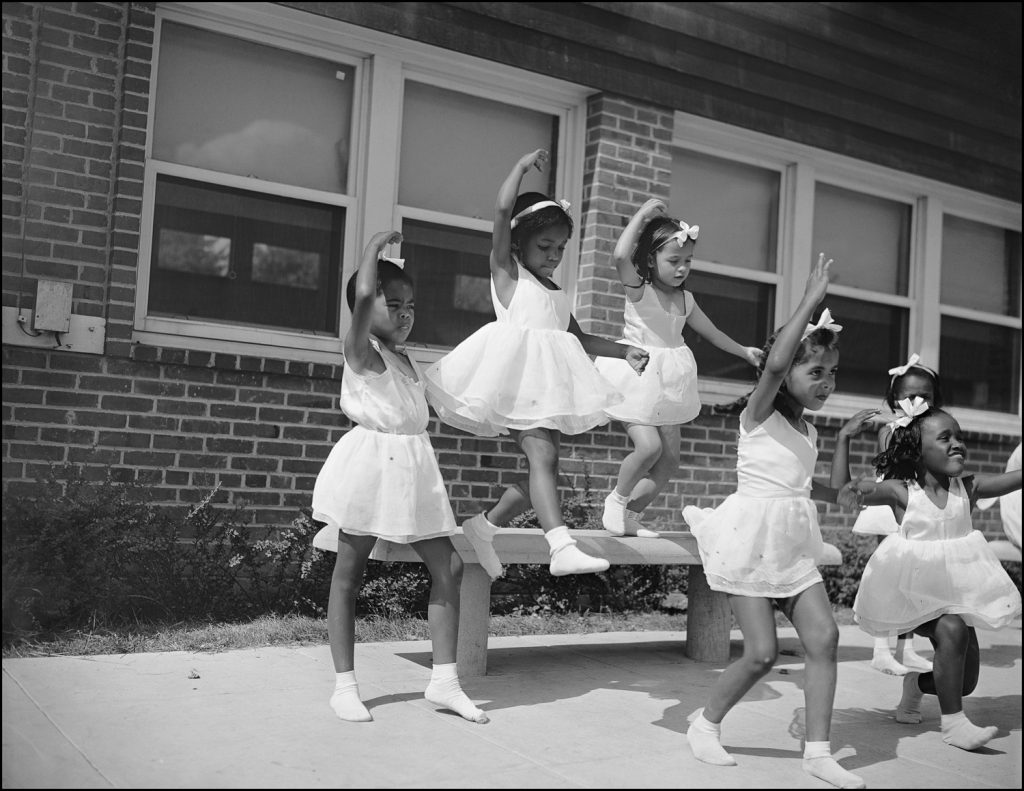
Gordon Parks, Untitled, Anacostia, D.C. (1942). Courtesy and copyright the Gordon Parks Foundation.
Why We Like It: The breadth and importance of Parks’s oeuvre cannot be understated. His images of Black life in America—including of seminal figures from Malcolm X to Muhammad Ali—have helped shape not only perceptions but understandings of 20th century realities. The present exhibition at Jack Shainman Gallery in conjunction with the publishing of an extended edition of Parks’s book offers a chance to reconsider his work within a contemporary context.
Parks’s practice is particularly unique in that he worked within the realms of both the mainstream and the radical, which speaks to his deep understanding of humanness; in a world of myriad intersections, Parks’s images bridge the individual with the collective, urban with rural, and provides a singular perspective on history and modern day. Featuring examples of some of his best-known works as well as lesser known and exhibited works, Born Black, allowing for new juxtapositions and dialogues to emerge and create another way of approaching history.
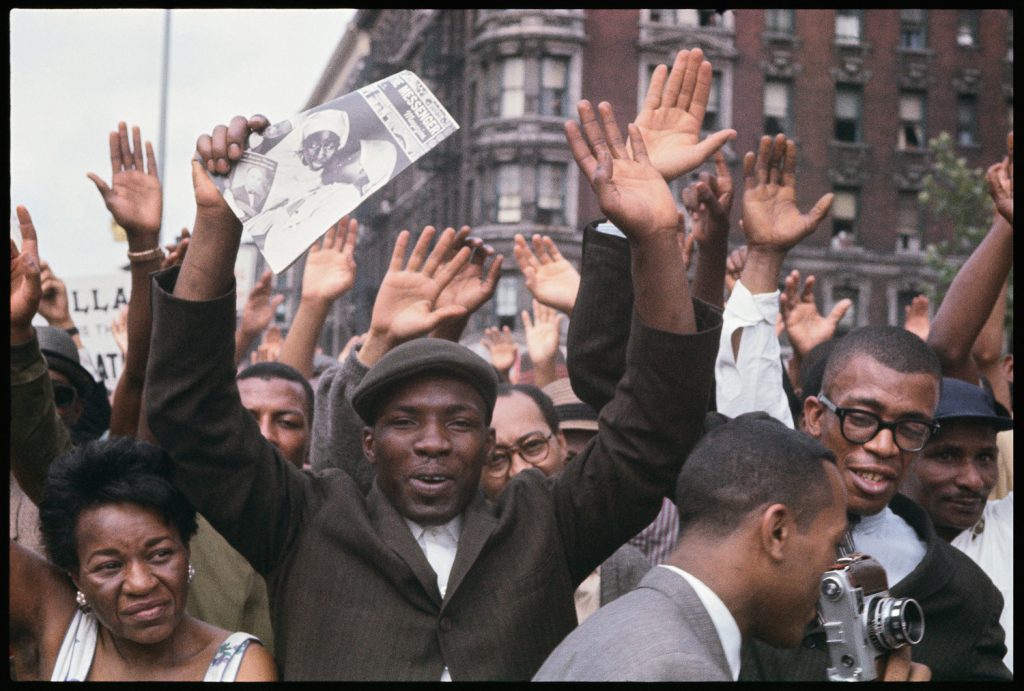
Gordon Parks, Untitled, Harlem, New York (1963). Courtesy and copyright the Gordon Parks Foundation.
“Gordon Parks: Born Black” is on view at Jack Shainman Gallery, New York, through April 20, 2024.